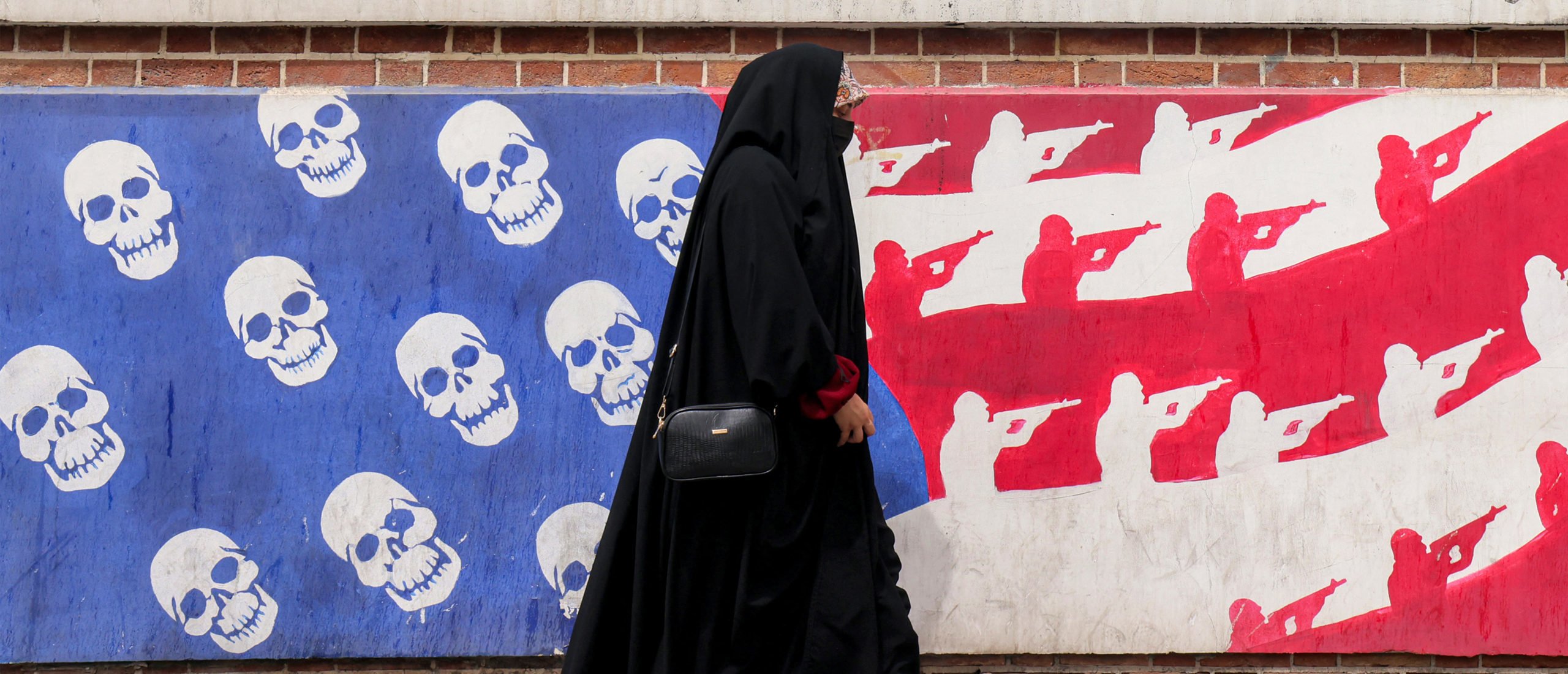The Trump administration’s planned negotiations with Iran on Saturday may be Iran’s last chance to back out of its nuclear program before the hammer falls, experts told the Daily Caller News Foundation.
Trump announced the high-stakes meeting in Oman during a press conference with Israeli Prime Minister Benjamin Netanyahu in the wake of his repeated warnings to the country that it would face consequences if it did not reach a nuclear deal. Experts told the DCNF that Iran’s opportunity to negotiate a deal is running thin while U.S. military assets encircle the nation and sanctions continue to ratchet up.
“This is more a meeting about negotiations to really determine whether Iran is serious enough, and they’re willing to do difficult things and give difficult concessions, or whether they’re not,” Gabriel Noronha, executive director of Polaris National Security, told the Daily Caller News Foundation. “This is the last chance for Iran to take the exit ramp from its nuclear program. If it doesn’t want to take this exit ramp, then it’s going to go down a very dark path for itself.” (RELATED: ‘Totally Insane’: Biden-Harris Admin Openly Admits Iran Became Enriched During Its Tenure)

A woman walks past a mural depicting the US flag with the stars substituted with skulls and the white and red stripes with silhouettes of soldiers firing assault rifles, painted on the outer walls of the former US embassy in Tehran, colloquially-referred to as the “Spy Den,” on April 8, 2025. (Photo by ATTA KENARE/AFP via Getty Images)
Trump said Wednesday that military action alongside Israel was an option “if necessary” amid his push to get Iran to the negotiating table on its pursuit of nuclear weapons. Robert Greenway, director of the Allison Center for National Security at The Heritage Foundation, told the DCNF that Iran has little options when it comes to recourse as its proxies dwindle in influence.
“Hamas is virtually destroyed, Hezbollah has been decapitated, and Syria has undergone a change in management and the Houthis are on the ropes and will soon be incapacitated themselves,” Greenway told the DCNF. “That puts Iran very much back in a box that they have not been in a long time. The region would benefit greatly from it.”
Iran’s proxies have been hammered by both Israel and the U.S., with the Houthis under immense pressure from renewed strikes from the Trump administration and Iran-backed militias in Iraq considering backing down as the new reality sets in.
Hezbollah has been heavily weakened from Israeli activity, with the IDF estimating they had destroyed nearly 80% of the group’s weapons in Dec. 2024.
Trump reportedly gave a two-month deadline to Iran to make a nuclear deal in a letter sent to Ayatollah Ali Khamenei March 12, according to Axios. Khamenei called the letter a “deception” meant to portray Iran as not open to negotiating with America.
The Obama-era joint comprehensive plan of action (JCPOA) was heavily criticized, as it lacked a perpetual ban on the country’s nuclearization once sunset provisions triggered. Trump backed out of the deal in 2018 during his first term.
U.S. Special Envoy Steve Witkoff said Friday that the U.S. would be “open to compromise” with Iran over its nuclear program, saying the “red line” was the “weaponization” of Iran’s nuclear capability, according to the Wall Street Journal. Iran, with its current stockpiles of 60% enriched uranium, can make a nuclear weapon in just one week, the International Atomic Energy Agency said in a March 2025 bulletin.
Rebeccah Heinrichs, director of the Keystone Defense Initiative at the Hudson Institute, told the DCNF that nuclear negotiations with Libya presents a useful model the U.S. should use to tackle Iran.
“The Libyan government under Gaddafi made a decision to forgo its nuclear weapons program, it didn’t obfuscate and hide,” Heinrichs told the DCNF. “It didn’t say it was willing to have inspectors come in, but then it kept half the program in place. It turned over its program. That is what the Iran regime must do. The reason the JCPOA was so bad is because it didn’t actually dismantle the program.”
The U.S. has deployed multiple key military assets around Iran, including B-2 stealth bombers to Diego Garcia in the Indian Ocean and a naval strike group led by the USS Harry S. Truman aircraft carrier. In the event of a military strike, Heinrichs is adamant that it would likely not precipitate full-scale war.
“It would be a very limited military campaign with a very specific objective, which is to degrade and destroy an illicit nuclear program that would be designed to coerce and blackmail the nation of Israel and the United States of America,” Heinrichs told the DCNF.
The State Department did not immediately respond to the DCNF’s request for comment.
All content created by the Daily Caller News Foundation, an independent and nonpartisan newswire service, is available without charge to any legitimate news publisher that can provide a large audience. All republished articles must include our logo, our reporter’s byline and their DCNF affiliation. For any questions about our guidelines or partnering with us, please contact licensing@dailycallernewsfoundation.org.





![Jasmine Crockett Justifies Mass Illegal Immigration With Bizarre Argument [WATCH]](https://www.right2024.com/wp-content/uploads/2025/03/1742007023_Jasmine-Crockett-Justifies-Mass-Illegal-Immigration-With-Bizarre-Argument-WATCH-350x250.jpg)

![NYC Tourist Helicopter Falls into Hudson River, Siemens Executive and Family Among Those Killed [WATCH]](https://www.right2024.com/wp-content/uploads/2025/04/NYC-Tourist-Helicopter-Falls-into-Hudson-River-Siemens-Executive-and-350x250.jpg)








